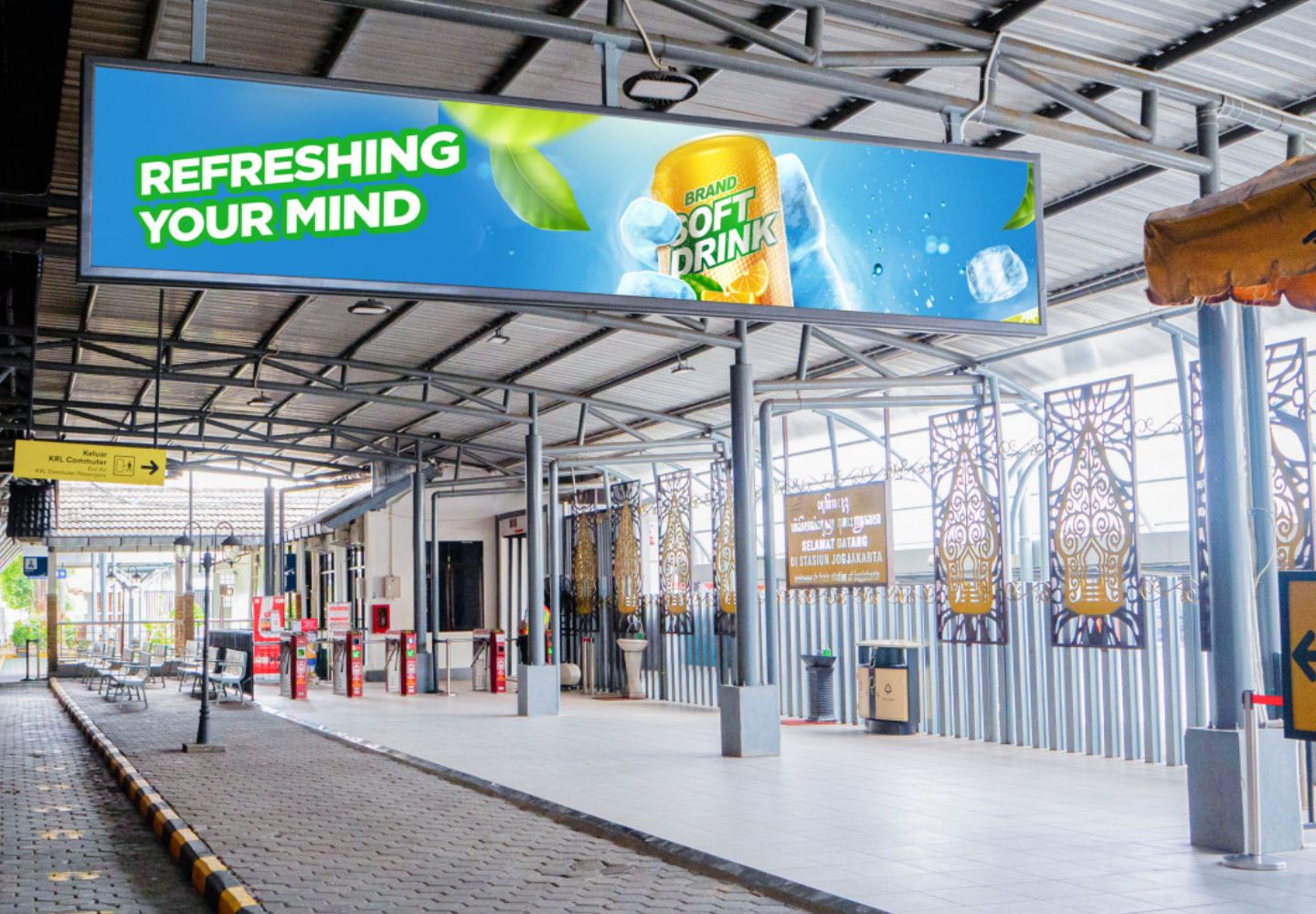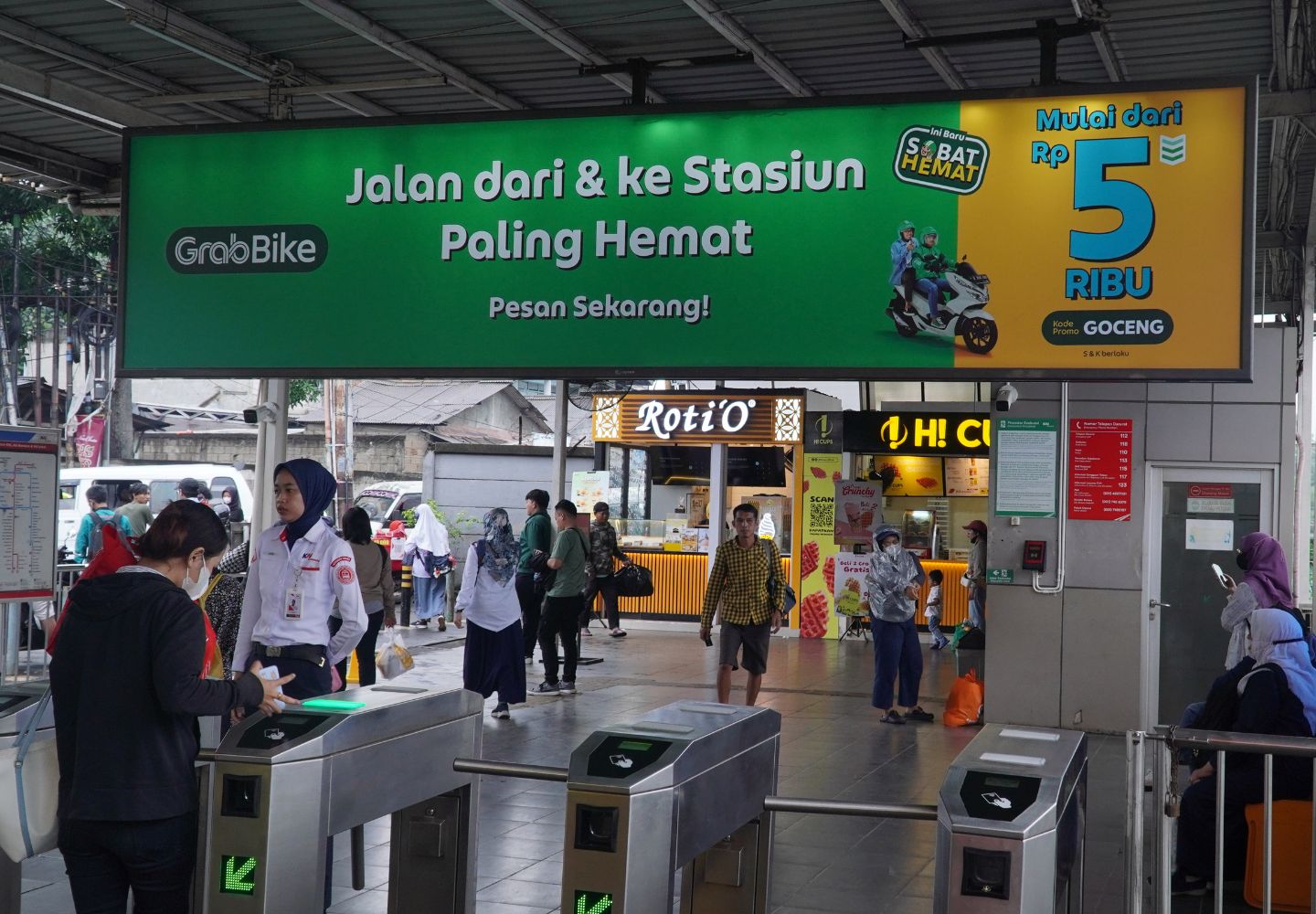If you look around while traveling on the streets of Yogyakarta, you will likely see the same view: rows of billboards lined up on almost every corner. From the Tugu intersection, ring road crossroads, to the road leading to Malioboro, large advertisements seem to compete for attention. However, the more billboards are installed, the less focused the audience becomes.
Many brands eventually face a dilemma. They invest heavily in OOH advertising on the streets, but the results are not always proportional. People passing by are more focused on traffic, avoiding congestion, or looking at their smartphones. Visuals that should be powerful end up becoming just a background that goes unnoticed.
This is the big challenge for modern marketers: how to create ads that are not only seen but truly experienced by the audience?
Now let’s shift perspectives. Imagine arriving at Tugu Station, one of Yogyakarta’s transport icons. Thousands of passengers disembark every day, bringing fresh energy to explore this cultural city. As they step out of the train, their eyes are wide open, filled with curiosity and enthusiasm.
This is where a crucial moment is created. There are no traffic jams to distract them, no honking horns to break concentration. People have time to look around—at the walls, hallways, and even visual installations in the station area.
While waiting for a ride or strolling casually toward Malioboro, they are in what is called waiting time. These are the moments when advertising can truly be absorbed and leave a lasting impression.
Placing OOH advertising in Yogyakarta at Tugu Station is not just about displaying your brand message, but about creating an experience that stays in the audience’s mind.

Source: City Vision
Many brands may wonder, are stations really more effective than streets? The answer is yes. Let’s break it down in more detail:
Captive Audience: On the street, the audience moves quickly, glancing at billboards for only a second. At the station, they wait for trains, queue for tickets, or wait to be picked up. This makes them a “captive” audience with more time to notice ads.
High Footfall & Diverse Audience: Data shows that Tugu Station serves thousands of passengers daily. The audience is diverse, from tourists, students, intercity workers, to families on vacation. This means the reach is not only local but also national.
First Impression Effect: For tourists, Tugu Station is the first face of Yogyakarta. Ads placed here become the very first memory carried throughout their journey. The psychological effect is strong, like a warm welcome directly tied to your brand.
Less Visual Clutter: Streets are packed with billboards and banners. In stations, ad spaces are limited, making your brand appear more exclusive without competing with hundreds of visuals.
Combined, the station is not just a transit point but a storytelling space that is more intimate and effective.
City Vision sees this opportunity clearly. Instead of adding to the visual noise on streets, City Vision provides premium solutions in strategic locations inside Tugu Station.
Key spots include:
Main entrance: the very first thing passengers see upon arrival.
Waiting area: where audiences sit for long periods with open eyes ready to absorb visuals.
Access to Malioboro: the busiest route, always crowded with tourists.
With these strategic locations, your ads are not only seen but also become part of the audience’s journey. City Vision transforms transit spaces into exclusive branding stages. Large, iconic, and classy visuals make ads not just information, but an experience.
Read also: City Vision: Not Just an OOH Agency

Source: City Vision
City Vision is not just a media provider but a branding partner that delivers extra value. Here are the advantages that set it apart:
Unmatched Exclusivity: Ad spaces in stations are limited. Brands that appear gain premium positioning in the eyes of audiences.
Unskippable Ads: In digital channels, people can skip ads in 5 seconds. At the station, the audience has no choice but to see your ad. Your brand message is always present before their eyes.
Boosts Brand Authority: Appearing in Tugu Station, a national transport icon, elevates brand credibility. Audiences see it as a sign of dominance, as if your brand is a “big player” in the industry.
Offline-to-Online Integration: Many tourists capture moments at the station. Large, iconic ads often appear in their photos or videos, spreading naturally on social media. This means your OOH campaign automatically integrates with digital exposure.
Read also: Out-of-Home Advertising in Jakarta
Tourism trends in Yogyakarta continue to rise, and Tugu Station is one of the busiest entry points for both domestic and international tourists. However, this opportunity is not open to all brands. Ad spaces in the station are limited and prioritized for brands that aim for premium positioning. If you delay, competitors may take the spotlight first.
City Vision gives you access to this rare opportunity: becoming the first face that greets thousands of people every day. This is not just advertising but a positioning strategy that puts your brand at the top of attention.
Read also: The Jogja-to-Jakarta Station Route: A Smart OOH Strategy for National Awareness Domination
Ultimately, advertising is not only about being seen but about how your brand message is felt and remembered. On the streets, audiences are busy with the stress of traffic. At Tugu Station, they arrive with open minds, waiting, relaxed, and ready to absorb new experiences.
With OOH advertising in Yogyakarta through City Vision, you are not just displaying visuals, but presenting a story that sticks in the audience’s memory.
Do not wait until competitors get ahead of you. Take advantage of this momentum now, and make Tugu Station not just a transit point but a shining stage for your brand.